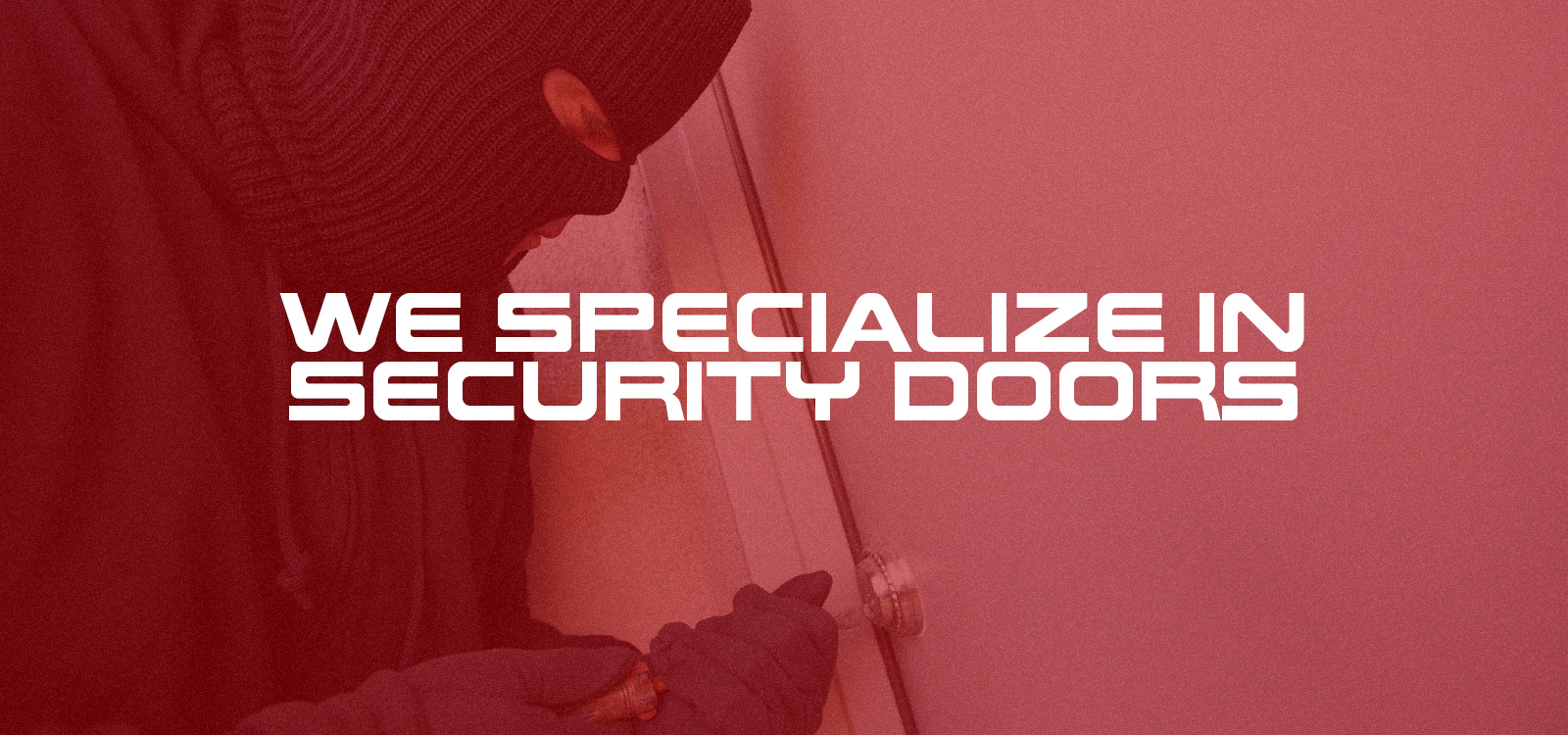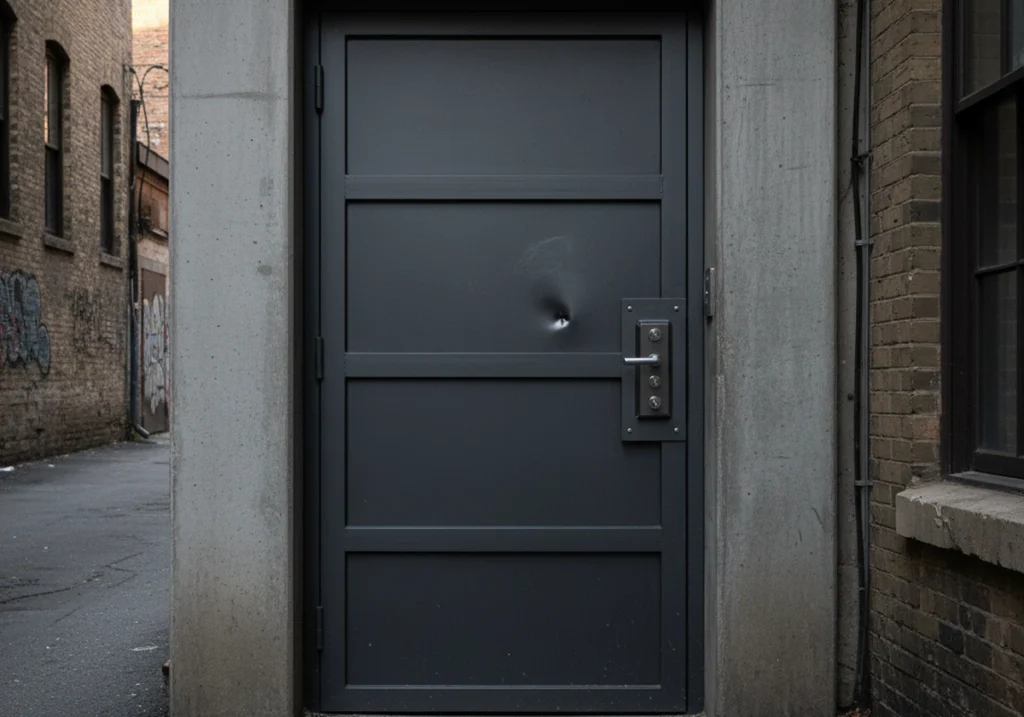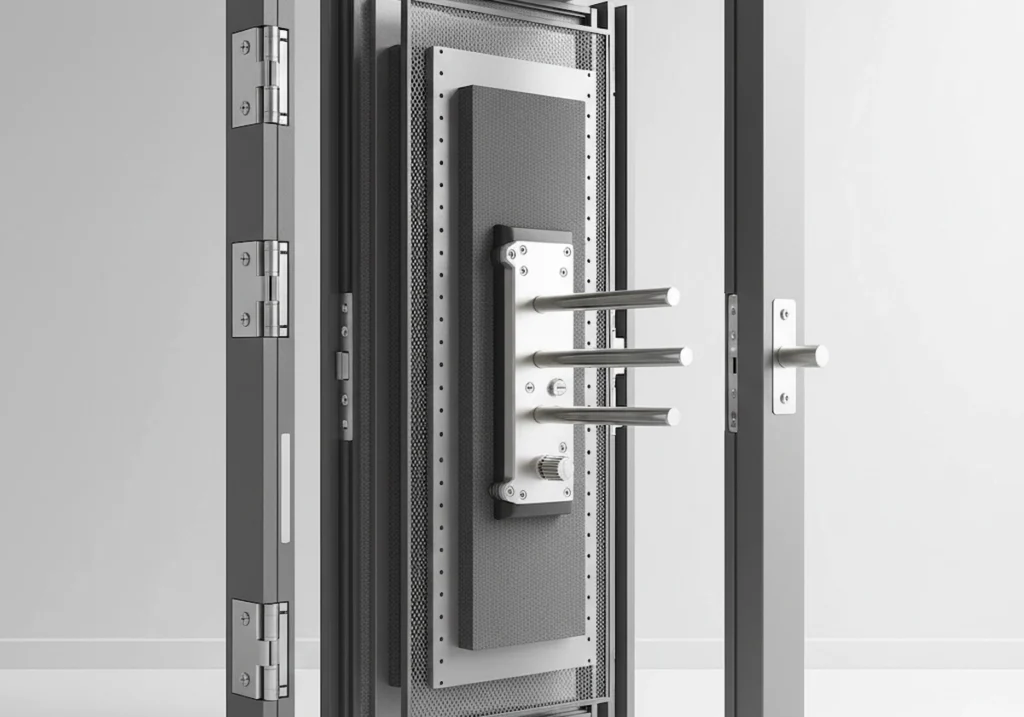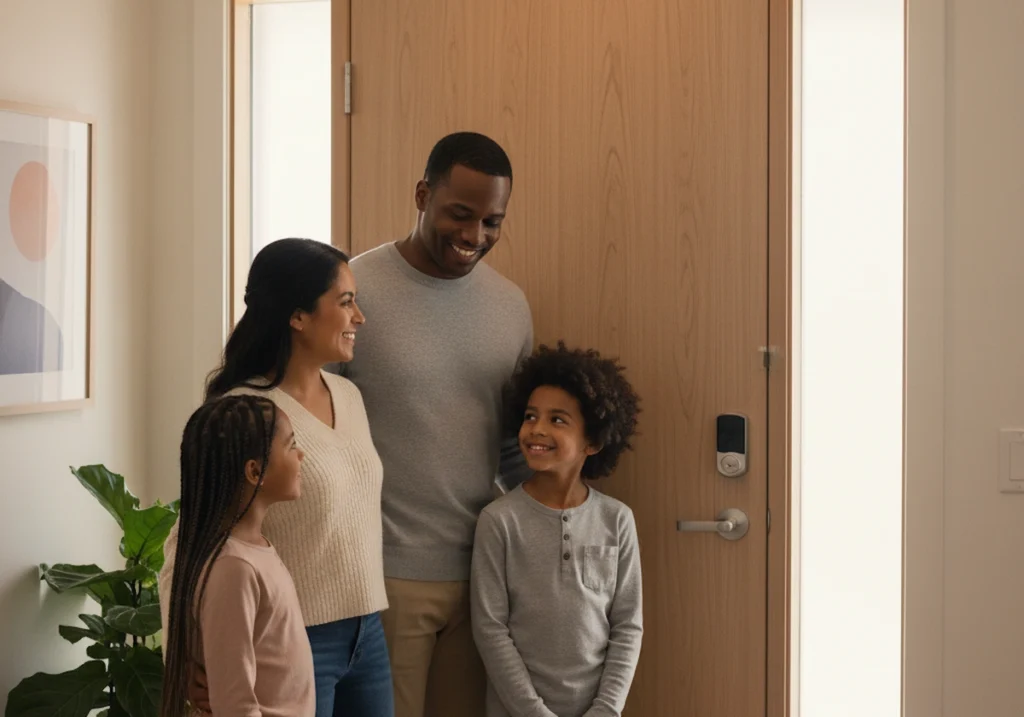
Simple Warning Signs Your Door Needs Replacing
Have you ever walked past a door in your home... Read more →
Your front door might feel solid, but here is the uncomfortable truth. A standard timber door can be forced open in seconds. Quick, loud, and over before you can react.
After 26 years helping Australian families secure their homes, we’ve seen what actually stops intruders. Home security doors work because they make break-ins too slow and too risky to bother with.
This guide explains what makes security doors worth the investment. You’ll learn how they stop burglars in their tracks, and which features are truly helpful so you don’t waste cash on useless upgrades.
Burglars prioritise accessibility and speed when targeting a home. If your door looks like it will take too long or make too much noise, they move on to an easier target.

What does this mean for burglary protection?
A quality security door is designed with reinforced materials that can withstand cutting, tearing, and knife attacks. That makes it hard for thieves to make a quick break-in.
Even with a crowbar, a properly installed security door takes minutes to breach, not seconds. It’s like the difference between a paper bag and a steel safe. Both hold things, but only one is built to resist attack.
The visible security screen acts as a deterrent before anyone even tries. Burglars scout neighbourhoods looking for easy marks. A security door tells them you’ve invested in protection. They’re not going to waste time and risk getting caught when the house next door has a flimsy screen.
Security doors range from $800 to $2,500 installed, depending on size, materials, and features. That sounds steep. But compare it to what a break-in actually costs.
The average burglary in Australia results in a financial loss of $2,129. Add your insurance excess, which typically runs $500 to $1,000. Then factor in the time you’ll spend filing police reports, dealing with claims, and replacing items. Some things can’t be replaced at any price.
A quality security door lasts 15 to 25 years with basic maintenance. Spread that $2,000 over 20 years and you’re paying $100 annually for round-the-clock protection. Less than most streaming subscriptions.
Plus, many Australian insurers offer premium discounts for homes with certified security measures. This strategy can save you $100 to $300 per year. The door can literally pay for itself over time.
What’s more, you can open your main door for airflow during summer without compromising safety, screen out insects, and see visitors before opening up. These benefits make the door useful year-round, not just a security measure you hope you never need.
Pro tip: Ask your insurer about potential discounts before you buy. Some companies offer bigger savings than others for the same security features.
Now that you know the value, here’s what separates a good door from a great one.
Always check that the door is certified to Australian Standards (AS 5039, 5040, and 5041). Certification means it has been independently tested under real force, not just built to “seem strong enough.”In short, you’re buying a door that’s already proven it can take a beating. Here’s what else to look for before you buy:

Tips for when you’re shopping: Physically test the door. Push on it. Check how solid the frame feels. Ask to see the certification paperwork. If the salesperson dodges questions about standards, walk away.
You can buy the best security door available and still ruin your protection with poor installation. Through our hands-on experience, we’ve seen expensive doors become nearly useless because someone cut corners during fitting.
Here’s what proper installation actually involves.
The frame needs to be anchored into brick, concrete, or solid timber. Not just the door frame. The installer also needs to make sure there are no gaps around the frame. Even a small space can give intruders leverage to pry the door open. Good weather sealing matters, too. It keeps out drafts and helps the frame stay strong, closing off weak spots before they become a problem.
Beyond anchoring, the door also needs proper alignment so it opens and closes smoothly. If it’s even slightly off, the hinges and locks wear down faster, creating weak points over time. A professional installer has the tools and know-how to get it right the first time.
Plus, they’ll spot problems with your existing door frame or wall structure before installation. Sometimes the opening needs reinforcement. Other times, the frame needs replacement. Once you address these issues, you can easily prevent security vulnerabilities and keep the door working as designed.

After putting it to the test over 26 years, we can tell you this: trying to save money with DIY installation or cheap labour usually costs more later. You end up paying to fix problems or replace a door that doesn’t work properly.
Home security doors protect your family and property while lasting decades with minimal maintenance. The upfront cost spreads across years of use and potential insurance savings. Also, you’re investing in protection that works continuously without monitoring fees or subscriptions.
You can’t prevent every possible threat. But you can make your home harder to breach.
We at Enfant Terrible can help you do that. We’ve been protecting Australian homeowners since 1999. Get in touch so we can find the perfect security door that keeps burglars out and keeps you safe.